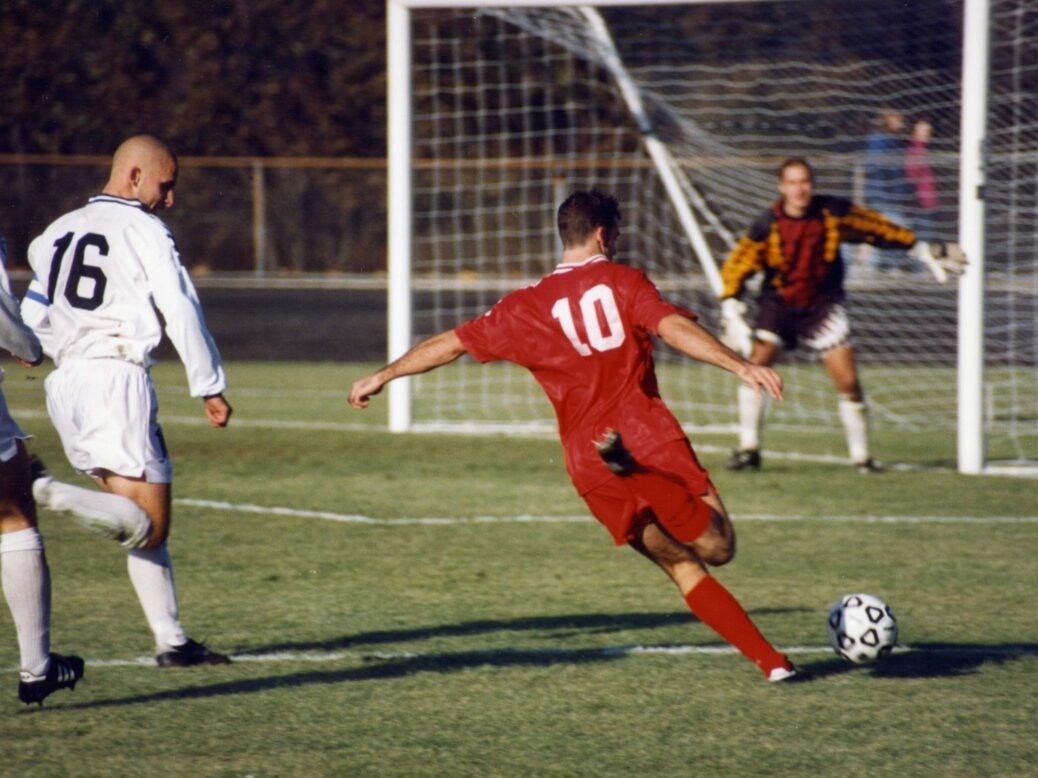
At the end of a turbulent decade and a tragic season, one match offered fresh hope for English football, writes Jason Cowley
Just recently I was contacted by a journalist from the French sports paper L’Equipe who was writing a long article about the final match of the 1988-89 English First Division season and wanted to discuss it with me.
The match, between Liverpool and Arsenal at Anfield, was played unusually late in the season on 26 May. You could call it the last game of the last full top-flight football season of the Eighties – such a turbulent decade for football and the country. Having topped the table for much of the season, Arsenal, now three points behind Liverpool, had to win by two goals to clinch the title on goal difference.
It was the perfect finale to what had been a traumatic season. Liverpool were the dominant side in English football and were in extraordinarily good form, having won the FA Cup the previous weekend. They were also on a mission, because this was the season of the Hillsborough stadium disaster when 96 Liverpool fans died on Saturday 15 April after being caught up in a crush during an FA Cup semi-final against Nottingham Forest.
The tragedy resulted in the suspension of the season as the nation struggled to understand and explain what had happened. Many believed the season should have been abandoned altogether out of respect to those who had died, innocent fans who were grotesquely accused in the Sun in the immediate aftermath of the disaster of being responsible for their own misfortune. (The Sun is still hated on Merseyside.) I was on the terraces myself that afternoon watching Arsenal beat Newcastle 1-0 at Highbury, an intimate jewel of a stadium with its listed art deco stands. (Sadly, most of the stadium has been demolished and replaced by apartment blocks.)
In the spring of 1989 I was in my final year at university and had travelled to London without a ticket (you could do that before the advent of all-seater stadia) to watch my team, who were well positioned to win their first league title since 1971. And yet, the ground was far from full.
Back then football was not the game it is today, so desirable at the highest level to Arab autocrats, Russian, American and Chinese oligarchs and the international plutocracy, an engine of soft power and an instrument of free-market globalisation at its most rapacious. It was a game blighted by racism and hooliganism and played in mostly run-down stadiums. The fans were reviled. And when, on that afternoon, we heard about what was unfolding at Hillsborough, it was automatically assumed that the deaths had been caused by fighting among supporters.
We were wrong. Hillsborough was something else altogether – and the tragedy was the beginning of the end of the old football. It was the catalyst for a profound cultural and economic transformation and for (forgive the jargon!) embourgeoisement of the people’s game. I am still haunted by the news footage of those Liverpool fans struggling to free themselves from the crush on the Leppings Lane terrace, and the photographs in the newspapers portraying the suffering of the dying as they were pushed up against the perimeter fence that caged them like livestock and prevented them from escaping on to the pitch.
In his novel Mao II, the American writer Don DeLillo described the scenes at Hillsborough as resembling something from a great religious painting, ‘a crowded twisted vision of a rush to death as only a master of the age could paint it’. Once the season resumed, Liverpool started to win game after game and soon overhauled long-time leaders Arsenal. The match at Anfield – what I have called the Last Game – had been postponed because of Hillsborough.
The rescheduled fixture was taking place after the season had officially ended for all other teams. The match, broadcast live on ITV, was remarkable, with Arsenal winning 2-0, just as they needed. The second goal was scored by Michael Thomas – who later played for Liverpool – in the final minute of injury time with the last shot in the last game of the last full season of the Eighties, after which nothing would be the same again.
Most remarkable of all was that the Liverpool fans, in their tens of thousands, stayed on to applaud the London team, the new champions. After the pain and suffering of Hillsborough we were witnessing an expression of extraordinary solidarity between rival fans. We were at the end of an era. The exuberant and gaudy Eighties, during which football had been left behind, were ending.
We were at the start of something new and 1989 was the hinge year in football’s modernisation. Italia 90 and Gazza’s tears lay ahead as football would soon be marketed as a ‘whole new ball game’ in the era of the Premier League.
Jason Cowley’s memoir, The Last Game: Love, Death and Football, was published in 2009 by Simon & Schuster
This first appeared in issue 68 of Spear’s magazine, available on newsstands now. Click here to buy and subscribe.







